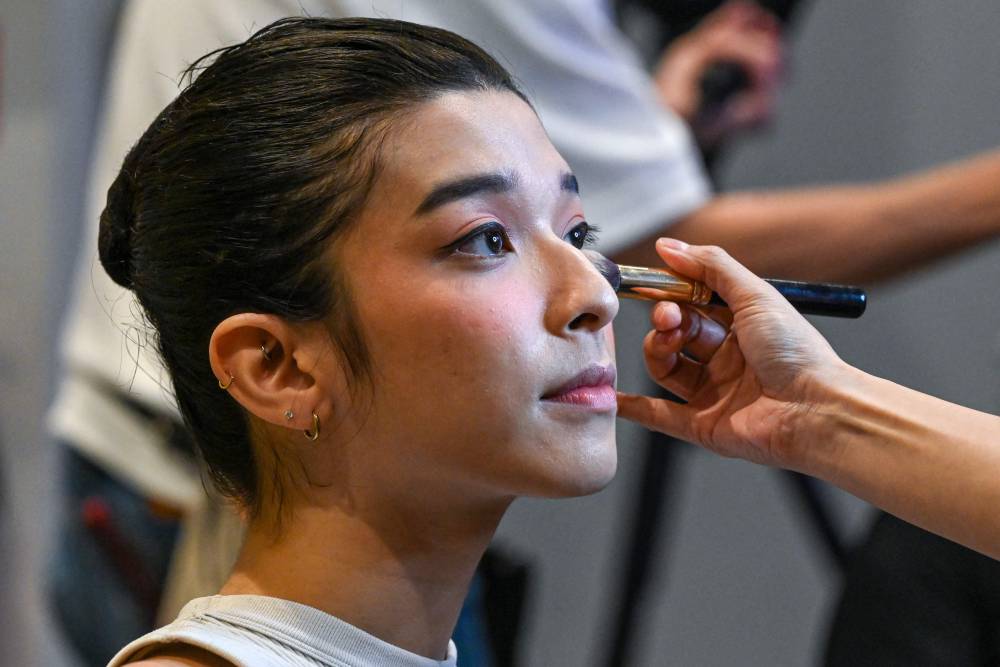'Act of rebellion': Trans actor finds stage in Singapore
Medli Loo's journey navigating gender and identity in Singapore

SINGAPORE - Once a child actor who featured in indie films and mainstream TV series, Medli Dorothea Loo found her career options limited after undergoing a gender transition in conservative Singapore.
While Singapore has a vibrant LGBTQ community, activists say transgender people still face stigma, from job discrimination to family rejection.
With LGBTQ characters effectively barred from free-to-air TV, performers like Loo are rare in Singapore's mass media.
"Within Singaporean spaces, trans people are just (considered as) jokes," the 20-year-old told AFP.
"I think me being on stage as a trans body, as a trans voice, is a little act of rebellion. It's like kind of a middle finger to 'Singaporean values'," said Loo, who has turned more to theatre performance since she came out in 2021.
Her latest appearance was in January in a small documentary theatre production TRANS:MISSION, featuring different generations of trans people discussing their lives in Singapore in front of a live audience.
Raised in a Catholic family, she began acting aged seven, when she performed in the 2011 short film "Cartoons" by Singaporean award-winning filmmaker Ken Kwek.
She has since appeared on TV shows, films, and stage productions, as well as graduated from a high school theatre programme.
Her best-known role was in Lion Mums 2, a 2017 mainstream drama series, playing a supporting cast role of a student who dies by suicide, after being caught cheating at a badminton tournament.
"Getting to perform the pain... helped me process my own pain at that point," she said, calling it "cathartic" as she was struggling with gender dysphoria and mental health issues.
'Hurtful stereotypes'
The appearance of queer characters onscreen is rare. And when they do, they are loaded with stereotypes in Singapore where regulations restrict portrayals of LGBTQ people in local media, campaigners say.
In 2022 Singapore repealed a British colonial-era law criminalising sex between men but authorities said controls on LGBTQ media content would stay.
Classification guidelines state that mature-themed films and TV shows -- including "alternative sexualities" and gender identities -- are generally restricted for those aged 16 and above, meaning they cannot appear on free-to-air TV.
While the guidelines place no restrictions on queer performers, activists say producers may harbour their own biases, or fear negative audience or sponsor reactions.
The "little representation" on Singapore screens is "along the lines of very unfortunate negative depictions or portrayals of trans characters, playing into very hurtful stereotypes of trans people as either criminals or deviant," said Leow Yangfa, executive director of Oogachaga, a nonprofit offering counselling to LGBTQ people.
When she began questioning her gender identity at the age of 13, Loo turned to the internet and American YouTubers became her primary source of information.
"There's basically zero trans representation in Singapore," she said, adding: "I just didn't think that it was possible for me to do that (transition)".
'Fear and dread'
She said when her online research led her to realise that she was a girl trapped in a boy's body, "it wasn't a moment of joy and relief".
Rather it was one of "fear and dread, because I knew that if this was really who I was, I could risk losing my entire career and risk losing my family and all my friends."
She repressed her transness until a breakdown forced her to seek therapy before telling her parents.
Her mother took the news badly, but her father signed the consent forms for hormone replacement therapy at a private clinic as she was a minor.
Loo documented her transition on video app TikTok, telling thousands of followers the impact of the treatment she received.
As she expected, her career took a knock after she came out.
"I haven't done a TV job since I came out," she said.
She lost hundreds of followers on Instagram. Producers she had previously worked with, stopped calling. And she resorted to stage productions that are less restricted.
But despite those small wins, she still feels her options are limited.
"I want to be an artist beyond being trans... I feel that the only way for me to have a fulfilling career is to not be here" in Singapore. - AFP














